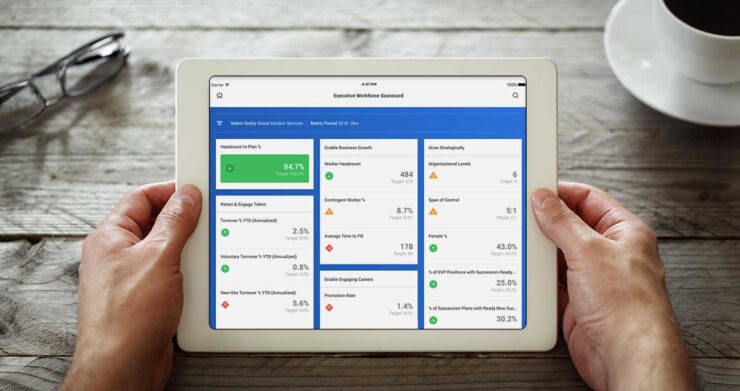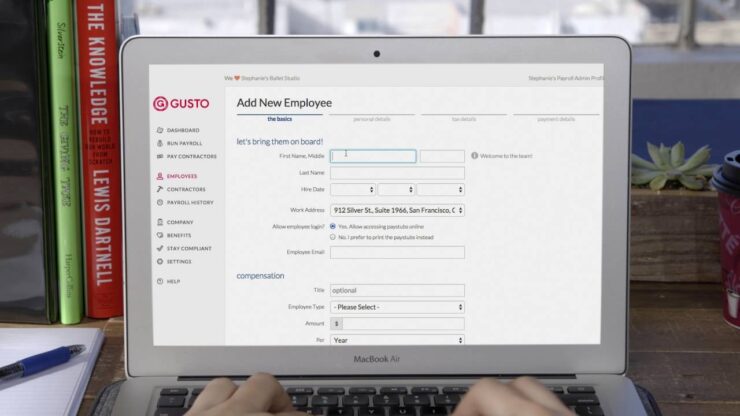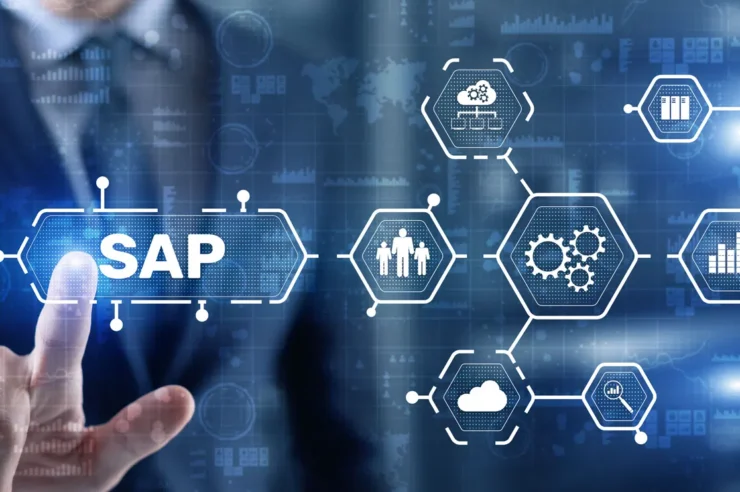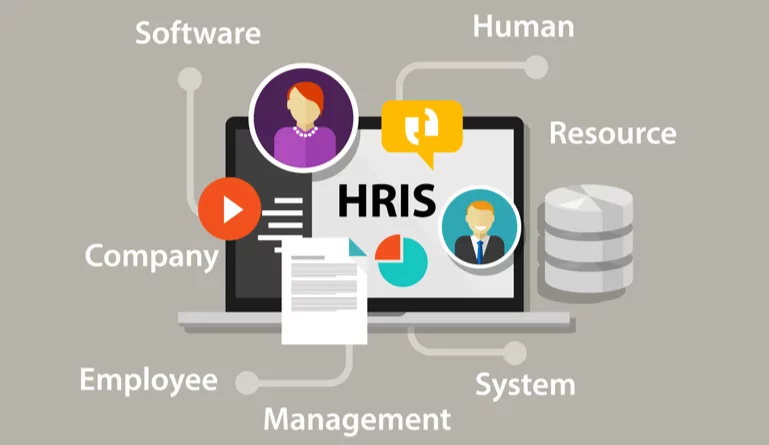What is HRIS? Human Resource Information Systems (HRIS) is a symbol of innovation for companies. HRIS is a software solution that integrates human resource management (HRM) and information technology. This fusion transforms HR from a traditional, paper-laden department into a dynamic, digital powerhouse.
Automating administrative tasks frees HR managers from the confines of paperwork and enables them to focus on strategic initiatives. It not only increases productivity but also enhances employee satisfaction. It has features like self-service portals, which help employees gain direct access to their personal information and foster a transparent and empowered workforce.
Moreover, HRIS systems provide important insights into workforce dynamics. Analyzing data on employee performance, turnover rates, and recruitment metrics helps companies make decisions. This approach is central to designing HR strategies that align with overall business objectives.
HRIS software development is evolving fast, and there are many companies similar to Evrone.com that offer tools that facilitate employee administration and foster strategic business growth. Integrating HRIS simplifies recruitment, simplifies onboarding, manages payroll efficiently, and ensures compliance with labor laws. Understanding the most popular HRIS systems and evaluating their features is essential for businesses looking to thrive in the competitive landscape of the corporate world.
5 Top-Rated HRIS Systems
While searching for optimal HR, selecting the right system is crucial. Here, we cover five of the most popular HRIS systems, evaluating their features, pros, and cons to guide you in making a choice.
1. BambooHR

BambooHR is well-known for its user-friendly interface and comprehensive HR toolset. It works well in areas like employee data management, time-off tracking, and performance management, and has a robust mobile app for on-the-go HR tasks.
Features
- Employee information system – Comprehensive database for storing all employee data securely.
- Performance management – Tools for setting and tracking employee goals, conducting performance reviews, and providing continuous feedback.
- Time tracking and leave management – Integrated system for tracking work hours, managing time-off requests, and calculating leave balances.
- Recruitment and onboarding – Streamlined applicant tracking system (ATS) for recruitment processes, along with efficient onboarding workflows for new hires.
- Reporting and analytics – Customizable reports and analytics dashboards for insights into HR metrics such as turnover rates, employee satisfaction, and more.
- Mobile application – A feature-rich mobile app that allows employees and managers to access HR functions.
Pros
- Intuitive and easy to use, perfect for small to medium-sized businesses.
- The excellent mobile app enhances accessibility.
- Effective employee self-service options.
Cons
- Limited customization options for larger enterprises.
- Reporting features could be more advanced.
2. Workday

Workday offers a broad spectrum of HR functions, including talent & financial management, payroll, and HR planning. It’s known for its scalability and analytics capabilities.
Features
- Human capital management – End-to-end HR management from recruiting, onboarding, talent management to retirement.
- Financial management – Integrated financial management module for streamlined budgeting and accounting.
- Advanced analytics – A tool that offers deep insights into workforce data and financial performance.
- Talent management – Tools for talent acquisition, learning management, and succession planning.
- Employee engagement surveys – Tools to measure and enhance employee engagement and workplace satisfaction.
- Global compliance – Features designed to ensure compliance with employment laws and regulations across different countries.
Pros
- Highly scalable, suitable for large enterprises.
- Advanced analytics and reporting tools.
- Integrated financial management features.
Cons
- The complexity of features may require a learning curve.
- Higher cost, smaller businesses might find it difficult to afford it.
3. Gusto

Gusto is primarily known for its payroll services, but it also offers a full suite of HR tools like benefits administration, compliance help, and simple onboarding processes.
Features
- Full-service payroll – Automated payroll processing, tax filings, and year-end reporting.
- Benefits administration – Easy management of health insurance, 401(k) plans, and other employee benefits.
- Compliance support – Assistance with state and federal compliance, including new hire reports and tax filings.
- HR tools – Basic HR tools for onboarding, PTO policies, org charts, and employee directories.
- Employee financial health tools – Automatic savings, financial education, and early access to earned wages.
- Simple integration – Seamless integration with popular accounting and time-tracking software.
Pros
- User-friendly interface, especially efficient for payroll management.
- Excellent for small businesses.
- Provides helpful compliance support.
Cons
- Less suitable for larger companies requiring more complex HR tools.
- Limited customization in HR features.
4. Zenefits

Zenefits stands out for its all-in-one HR platform, providing tools for payroll, benefits, time tracking, and more. It’s known for its ease of integration with other business systems and apps.
Features
- Integrated HR platform – A unified platform for payments, benefits, compliance, and HR management.
- Employee self-service – Enables employees to update personal information, access pay stubs, and manage benefits.
- Benefits management – Tools for managing health insurance, retirement plans, and other employee benefits.
- Time and scheduling – Tools for time tracking, scheduling, and absence management.
- Wellness initiatives – Integrated wellness programs to promote employee health and well-being.
- HR compliance – Automated updates for compliance with laws.
Pros
- Comprehensive HR solution with a wide range of tools.
- Easy integration with other systems.
- Ideal for small to medium-sized businesses.
Cons
- May lack depth in specific features compared to specialized software.
- Customer support can be improved.
5. SAP SuccessFactors

SAP SuccessFactors is designed for global enterprise-level HR management. It offers extensive features, including employee experience management, payroll, HR analytics, and talent management.
Features
- Talent solutions – Advanced talent management including recruiting, learning, performance, and compensation management.
- Employee experience management – Tools for gathering feedback and insights to improve employee engagement.
- Workforce planning and analytics – Strategic HR planning tools with predictive analytics for workforce optimization.
- Payroll and HR core – Global payroll solutions integrated with a core HR system for efficient management.
- Mobile functionality – Mobile capabilities for HR tasks and employee self-service.
- Cross-border HR management – Specialized features for managing a global workforce, including multi-language and currency support.
Pros
- Features suitable for global enterprises.
- Strong focus on employee experience and engagement.
- Advanced analytics and reporting capabilities.
Cons
- Can be overwhelming for smaller businesses due to its complexity.
- Higher cost associated with its comprehensive features.
Customized Solutions with Evrone

While the beforementioned HRIS systems list offers a range of powerful tools, there might be instances where pre-built solutions don’t fully align with your unique business requirements. This is where Evrone steps in.
If you’re looking for a tailored HRIS software development solution, Evrone’s expertise is unrivaled. Our team of professionals works closely with you to understand your needs, ensuring that the HRIS system we develop is not just a software solution but a strategic asset.
Evrone stands out with its ability to build bespoke HRIS systems that integrate with your existing workflow, enhancing efficiency without disrupting your current operations. Our commitment to understanding and adapting to your company’s unique culture and processes means that the solution we provide isn’t just effective — it’s a perfect fit for your organization.
With Evrone, you gain the flexibility, support, and innovation that off-the-shelf HRIS systems often lack, propelling your human resource management to new heights.
Build the Future of HR with the Right HRIS
Each HRIS system we’ve covered offers a unique portal into a world where efficiency and human-centric management coexist. From the intuitive ease of BambooHR to the expansive global capabilities of SAP SuccessFactors, these platforms are not just tools but gateways to unlocking the full potential of your human resources.
For those who find that off-the-shelf solutions don’t quite align with their vision, Evrone stands ready. Here, the creation of an HRIS system isn’t just about software development; it’s about crafting a digital ecosystem that resonates with the heartbeat of your company. With Evrone, you’re not just implementing a system; you’re weaving a fabric of technology and human insight that’s tailored to your unique corporate narrative.
Let’s step into the future of HR with confidence and together, equipped with the best tools to elevate our human resource practices to unprecedented heights.

